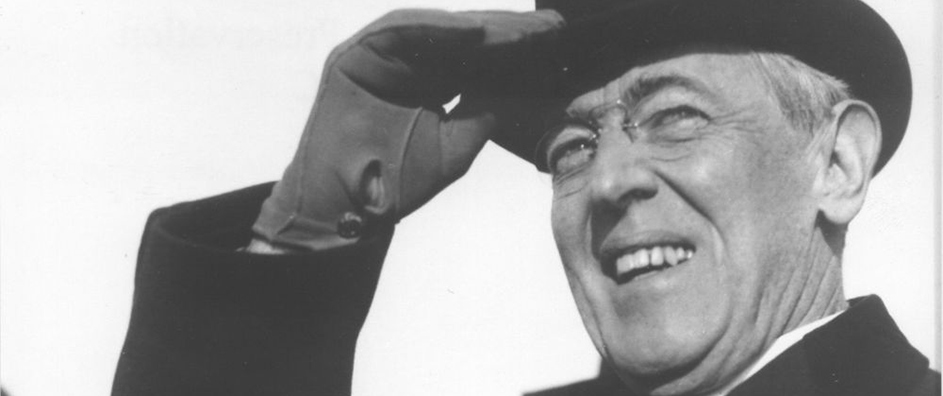The concept of universal peace is not merely a lofty ideal within the Baha’i teachings; it represents a compelling vision for humanity’s future. The artwork titled “Wilson’s Points: The Dawn of Universal Peace” epitomizes this message, encapsulating the aspirations and rigorous principles of a community striving to realize interconnectedness and harmony across the globe. This reflection aims to delve deeply into the tenets of Baha’i teachings, examining their implications for achieving a collective peace that transcends national boundaries and personal interests.
The Baha’i Faith, founded in the mid-19th century, posits that humankind is on the threshold of a new epoch defined by unity and peace. This vision is undergirded by the profound belief that humanity is one single race, possessing an intrinsic potential for collective advancement. Importantly, one of the foundational precepts of Baha’i teachings is the rejection of all forms of prejudice, whether racial, religious, or nationalistic. Such beliefs compel followers to adopt a perspective that nurtures relationships based on equity and mutual respect, fostering a culture where diversity is celebrated rather than feared.
An essential component of this journey toward universal peace involves a transformative shift in perspective—one that advocates for the collective over the individual. The Baha’i writings suggest that peace is not merely the absence of conflict but an active process of creating relationships characterized by love and reciprocity. This understanding challenges entrenched social and national paradigms. By prioritizing global citizenship, Baha’is aim to instill a sense of responsibility that transcends one’s immediate community or nationality. This elevation of human consciousness necessitates a re-examination of existing societal structures, encouraging an embrace of nobler, altruistic motives that contribute to societal well-being.
The promise of universal peace is deeply interwoven with the concepts of justice and equity. Justice, as articulated in Baha’i teachings, serves as the foundation upon which peace can be built. It is posited that without justice, the fabric of society becomes irrevocably frayed, leading to fragmentation and discord. Hence, to embark on this journey toward peace, a commitment to ensuring social justice must be paramount. This includes addressing economic disparities, dismantling systemic inequities, and fostering environments conducive to the flourishing of every individual, regardless of their background.
Furthermore, the role of education cannot be overstated in the context of Baha’i teachings. Education, as the great equalizer, serves to eradicate ignorance, which Baha’is identify as a principal source of conflict. By promoting universal access to education, individuals are empowered to cultivate critical thinking, empathy, and an understanding of our shared human experience. This educational framework not only equips individuals with necessary skills but also instills an appreciation of diverse perspectives, nurturing a culture of dialogue and mutual understanding. Through education, humanity progresses toward unity, reinforcing the social structures essential for peaceful coexistence.
A unique aspect of the Baha’i approach to peace is its profound emphasis on the spiritual dimensions of life. Baha’is believe that true peace must arise from a deep-rooted spiritual awareness that influences individual behavior and collective action. The transformative power of spirituality can illuminate the paths of compassion and service to others, challenging the selfish instincts that so often plague human interactions. Baha’is gather in communities, engaging in prayer and reflection, which fosters a collective spirit rooted in service and love. Such practices cultivate a sense of belonging and shared purpose, crucial elements in the quest for universal peace.
In embodying these teachings, followers are called to actively participate in initiatives that promote harmony. Community service, interfaith dialogue, and social action reflect the practical application of Baha’i principles. These activities not only address immediate social needs but also serve as a platform for instilling the values of cooperation and solidarity among diverse groups. The Baha’i community remains steadfast in its efforts to forge alliances across religious and cultural divides, aware that lasting peace will result only from the collaborative efforts of all humanity.
The artwork “Wilson’s Points” symbolizes the dawn of this transformative journey toward peace. It serves as a visual manifestation of hope and a reminder of the collective potential that lies within humanity. Each brushstroke invites the viewer to reflect upon their own role in this unfolding narrative. What contribution can one make to this quest for universal peace? How can individuals shift their perspectives to align more closely with the ideals of unity and cooperation?
In conclusion, the aspiration for universal peace as expressed through Baha’i teachings represents a multifaceted and profound endeavor. With a commitment to justice, education, and the spiritual dimensions of life, the Baha’i community actively works toward realizing this vision. The journey is not simple; it demands introspection, dedication, and collective action. However, as the sun rises on the horizon of possibility depicted in “Wilson’s Points,” one cannot help but feel an overwhelming sense of hope. It invites a reimagining of our future, where peace is not just an abstract concept but a lived reality borne from shared understanding and unwavering commitment to the welfare of all.
